Share
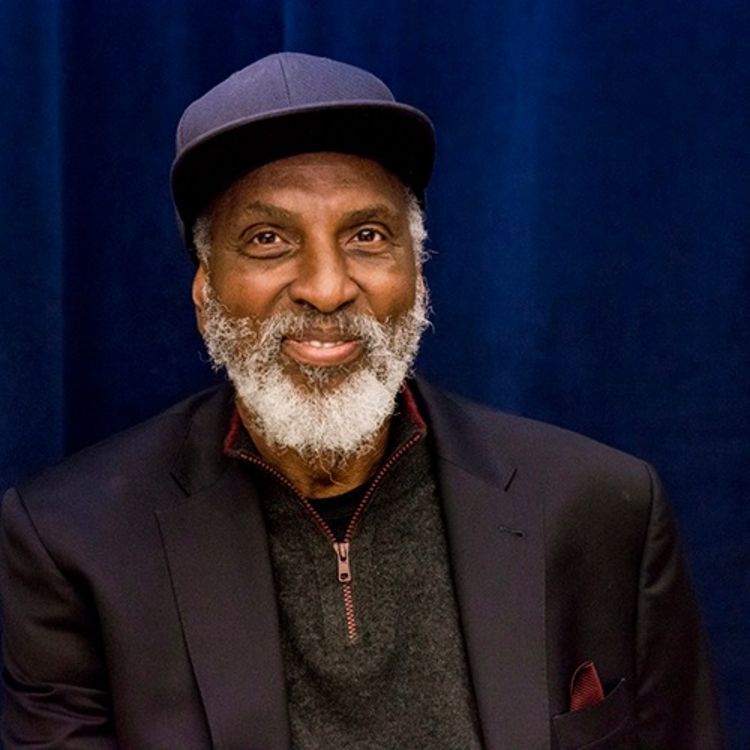
Berkeley Talks
john powell on rejecting white supremacy, embracing belonging
On Friday, Aug. 30, UC Berkeley held a symposium that marked the start of a yearlong initiative, "400 Years of Resistance to Slavery and Oppression," commemorating the 400th anniversary of the forced arrival of enslaved Africans in the English colonies with a daylong symposium. It drew hundreds of attendees who heard from more than a dozen historians and social scientists about the impact and legacy of slavery in society today.
In his keynote speech to close the symposium, john powell, director of the Haas Institute for a Fair and Inclusive Society and professor of law, African American studies and ethnic studies, discussed the link between slavery and white supremacy. Slavery, he said, created anti-black racism, which was necessary for the extraction of capital.
“It was never about, ‘I don’t like you because you’re different, because you have more melanin than me.’ It was about capital. It was about the U.S. industrializing … It was about the elites trying to figure out how to extract as much capital as possible and using people and people’s land to do that. Slavery is about America,” he said.
Read the transcript and see photos on Berkeley News.
More episodes
View all episodes

246. The rule of law depends on the courage of judges
58:12||Ep. 246In 1957, 6-year-old Bernice Bouie Donald started first grade in rural DeSoto County, Mississippi. Although the U.S. Supreme Court had struck down school segregation three years earlier in Brown v. Board of Education, the young girl’s educational reality remained unchanged: Her all-Black school was a two-room cinderblock building with no indoor plumbing, and her books were hand-me-downs discarded by white students.Donald went on to have a decadeslong career as a federal judge, and at a recent UC Berkeley Law event, she shared her personal memories to highlight a sobering truth: The rule of law is not self-executing. For the promise of Brown to reach her classroom, Donald explained, it required "extreme moral courage" from judges who faced bombings, social ostracization and death threats to enforce the law. Without that bravery, she warned, the law is "simply words on a piece of paper."This ongoing challenge was at the heart of a Dec. 5, 2025, panel discussion featuring Donald and a group of legal experts. Together, the panelists discussed the rising tide of personal and political threats facing the judiciary, exploring how modern pressures — from social media harassment to political tribalism — threaten the independence necessary for a fair society.The event was part of “Conversations in Civil Justice,” a webinar series presented by UC Berkeley Law’s Civil Justice Research Initiative and co-sponsored by the Berkeley Judicial Institute. The series is supported by a gift from the American Association for Justice’s Robert L. Habush Endowment.The panelists include:Bernice Bouie Donald, a retired judge from the U.S. Court of Appeals for the Sixth Circuit. Philip Pro, a retired federal judge from the District of Nevada.Amrit Singh, a professor of professional practice and faculty director of the Rule of Law Lab at New York University School of Law. Jeremy Fogel (moderator), executive director of the Berkeley Judicial Institute and a retired federal judge from the Northern District of California.Richard Jolly (moderator), professor at Southwestern Law School and senior fellow at the Civil Justice Research Initiative.Watch a video of the discussion.Listen to the episode and read the transcript on UC Berkeley News (news.berkeley.edu/podcasts/berkeley-talks).Music by HoliznaCC0.Photo via Unsplash.
245. An evolutionary biologist makes the case for pausing AI
51:35||Ep. 245In the early 20th century, factory workers — later known as the “Radium Girls” — were hired to paint watch and instrument dials with radium‑based luminous paint. They were instructed to keep their brushes sharp by shaping them with their lips. In the following years, many of these workers developed devastating illnesses, including severe bone and jaw damage, anemia and cancer, that were ultimately traced to chronic radium exposure.For Holly Elmore, an evolutionary biologist and executive director of PauseAI US — an organization that seeks a global pause to advanced AI development — this tragedy is a stark warning for our current era. In a talk she gave Dec. 9 for the Berkeley AI Risk Speaker Series, Elmore argues that we’re repeating this mistake with artificial intelligence by assuming we can safely play with a technology we don't fully understand. “The expectation of many people in AI safety, for many years, has been that when we got to this point, the AI, once it was aligned, would figure out the answers for us,” she says. But Elmore warns that this approach is like clearing a minefield by walking through it. As AI capabilities grow, she says, the probability of accidents increases — and unlike minor software glitches, these could be "one-shot" events that we cannot recover from. She points to risks ranging from the automated assembly of bioweapons to the unpredictable disruption of the social and environmental systems we depend on for survival. Instead of waiting for a machine to solve its own safety problems, she contends that experiments with such high-stakes technology are too costly to continue without a pause.“The scale of the danger really could cripple civilization or cause extinction,” she says, “and the possibility of this alone is reason enough to pursue pausing frontier AI development.”Watch a video of Elmore’s talk.Listen to the episode and read the transcript on UC Berkeley News (news.berkeley.edu/podcasts/berkeley-talks).Music by HoliznaCC0.Photo courtesy of PauseAI.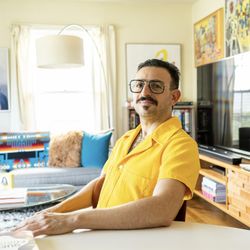
244. Ramzi Fawaz on the psychedelic power of the humanities
01:19:21||Ep. 244In this Berkeley Talks episode, Ramzi Fawaz, a professor of English at the University of Wisconsin–Madison, explores why the humanities and psychedelics might have more in common than you’d think, and how literature, much like psychedelics, can help open one’s mind to the world.Fawaz, who spoke at UC Berkeley in September, argues that the humanities classroom functions as a vital space for shared sense-making, where deep engagement with art and literature can rewire the brain much like a psychedelic experience — helping students heal from the rigid constraints of competitive individualism.During the talk, Fawaz recalls reading bestselling author and Berkeley Professor Emeritus Michael Pollan’s How to Change Your Mind. “I am sort of mind-boggled by the specific chapter where he talks about the neuroscience of psychedelics,” Fawaz tells Ramsey McGlazer, an associate professor in Berkeley’s Department of Comparative Literature, with whom he joined in conversation. “As I was reading it, I was like, ‘He’s just describing humanities education ... except we don’t use drugs, we use art and literature to invoke these transformative effects.’"Fawaz points out a divide in academia: While scientists look for "magic bullets" to treat mental health — with a specific pill or clinical treatment — humanities scholars often shy away from discussing the intense, emotional ways that art allows us to lose ourselves. He argues that by avoiding these deep sensory experiences, the humanities fail to use their full power to help people heal and grow.By bridging these fields, he suggests that the study of film and literature can pull us out of our narrow perspectives, enabling us to embrace diversity and multiplicity rather than feel threatened by it. “This is an extraordinary value of the humanities classroom that we don't talk about,” he says. “It literally has the potential to not only make people critical thinkers, but to actually heal them in a way.” The event, which took place on Sept. 25, 2025, was organized by the Center for Interdisciplinary Critical Inquiry and co-sponsored by the Berkeley Center for the Science of Psychedelics as part of the Psychedelics in Society and Culture programming.Fawaz is the author of two books — The New Mutants: Superheroes and the Radical Imagination of American Comics (2016) and Queer Forms (2022) — and is at work on a book titled How to Think Like a Multiverse: Psychedelic Pathways to Embracing a Diverse World. He recently launched his podcast Nerd from the Future, where he engages in conversations with the nation’s leading humanities professors about the state of higher education today. Listen to the episode and read the transcript on UC Berkeley News (news.berkeley.edu/podcasts/berkeley-talks).Music by HoliznaCC0.Photo by Bryce Richter/University of Wisconsin–Madison.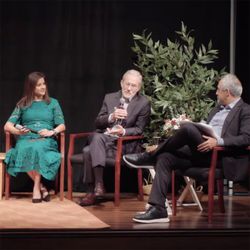
243. Why kind leaders finish first (according to science)
01:38:16||Ep. 243A broad group of leaders from academia and the private sector — including UC Berkeley Chancellor Rich Lyons and neuroscientist Emiliana Simon-Thomas of the Greater Good Science Center — discuss how kindness is a strategic asset rather than a professional weakness, and why the traditional “jerk” model of leadership is scientifically flawed.This shift toward evidence-based management, the panelists point out, is backed by massive datasets. “When companies perform very well, we find that prosocial CEOs are more likely to share credit with others,” explains Weili Ge, a professor at the University of Washington’s Foster School of Business, drawing on data from a decadelong analysis of 3,500 corporate leaders. “And when firms don't do well,” she continues, “they're less likely to shift the blame, they're more likely to take responsibility. This is quite different from self-centered CEOs, who are more likely to take credit when things go well and shift the blame when things don't go well."The panelists include: Rich Lyons: 12th chancellor of UC Berkeley Emiliana Simon-Thomas: Science director at UC Berkeley’s Greater Good Science CenterWeili Ge: Professor of accounting at the University of Washington’s Foster School of BusinessYamini Rangan: CEO of HubSpot, Berkeley alumKeyAnna Schmiedl: Chief human experience officer at WorkhumanDenis Ring: Former CEO of Ocho Chocolates, creator of the Whole Foods 365 brandKia Afcari (moderator): Director of Greater Good Workplaces at the Greater Good Science CenterThe event, which took place on Dec. 1, 2025, was hosted by the Greater Good Science Center in partnership with the Berkeley Center for Workplace Culture and Innovation.Listen to the episode and read the transcript on UC Berkeley News (news.berkeley.edu/podcasts/berkeley-talks).Music by HoliznaCC0.Video screenshot.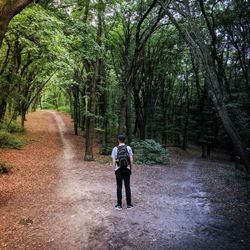
242. How do we make better decisions? (revisiting)
01:05:17||Ep. 242Today we are revisiting a Berkeley Talks episode in which a cross-disciplinary panel of UC Berkeley professors, whose expertise ranges from political science to philosophy, discuss how they view decision-making from their respective fields, and how we can use these approaches to make better, more informed choices. Panelists include: Wes Holliday, professor of philosophy. Holliday studies group decision-making, including the best methods of voting, especially in the democratic context. Marika Landau-Wells, assistant professor of political science. Landau-Wells studies the effect that threat perception has on national security decision-making, and how some decisions we make to protect ourselves can endanger many others.Saul Perlmutter, Franklin W. and Karen Weber Dabby Professor of Physics and 2011 Nobel laureate. Perlmutter co-teaches a Big Ideas course, called Sense and Sensibility and Science, designed to equip students with basic tools to be better thinkers by exploring key aspects of scientific thinking.Linda Wilbrecht, professor of neuroscience and psychology. An adolescent scientist, Wilbrecht studies how adolescent learning and decision-making changes from ages 8 to 18, and how it compares to that of adults and children. Jennifer Johnson-Hanks, executive dean of the College of Letters and Science (moderator).The campus event was held on Oct. 9, 2024, as part of the College of Letters and Science’s Salon Series, which brings together faculty and students from a swath of disciplines to interrogate and explore universal questions or ideas from disparate perspectives.Watch a video of the discussion.Listen to the episode and read the transcript on UC Berkeley News (news.berkeley.edu/podcasts/berkeley-talks).Music by HoliznaCC0.Photo by Vladislav Babienko via Unsplash.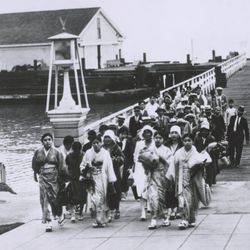
241. The making of racialized US immigration control
01:27:28||Ep. 241Before there was the Chinese Exclusion Act, there was the Page Act. Passed in 1875 amid growing anti-Chinese sentiment in the 19th century, the Page Act was one of the first national immigration laws in the United States. It targeted several categories of people, including contract laborers from Asia, women brought in for sex work and certain convicted criminals. In practice, however, it functioned mainly to restrict Chinese and other Asian women from entering the country.“It had enormous implications for the issues of race, gender and labor in U.S. immigration history and Asian American history,” says UC Berkeley history professor Hidetaka Hirota, who moderated a campus discussion in April to mark the Page Act’s 150th anniversary.In this Berkeley Talks episode, a panel of Berkeley scholars unpack how the Page Act helped institutionalize racially targeted exclusion and gendered surveillance at the border, and how it laid the groundwork for the 1882 Chinese Exclusion Act and later immigration laws. They also challenge the enduring myth of the “white bootstrapping ethnic,” supposedly living “the right way” without state support, showing instead how immigration and welfare regimes were structured to advantage European newcomers while systematically excluding Asians and other people of color.Panelists include Catherine Ceniza Choy, professor of ethnic studies; Cybelle Fox, professor of sociology; Leti Volpp, professor of law; and Hidetaka Hirota, associate professor of history, who moderated the conversation. The event, which took place on April 23, was hosted by Berkeley’s Social Science Matrix and was co-sponsored by the Berkeley Interdisciplinary Migration Initiative, the Department of Sociology, the Department of History, the Department of Ethnic Studies, the Asian American Research Center and the Center for Race and Gender.Watch a video of the discussion.Listen to the episode and read the transcript on UC Berkeley News (news.berkeley.edu/podcasts/berkeley-talks).Music by HoliznaCC0.Photo from the National Archives.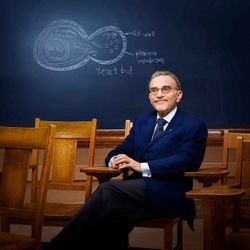
240. For Nobel laureate Randy Schekman, it began with pond scum and a toy microscope
01:00:19||Ep. 240When UC Berkeley Professor Randy Schekman was 12, he scooped up a jar of pond scum and examined it under his toy microscope.“I just could not believe the world that was revealed,” he said during a campus event earlier this month. “This complex set of creatures that you can't see with your naked eye, and yet are moving and somehow mechanically independent, and able to do amazing things. And this was so fascinating.”Schekman went on to become a professor of molecular and cell biology at Berkeley and win the Nobel Prize in Physiology or Medicine in 2013 for his discovery of how yeast membranes work. His research has led to advances in food and fuel production, as well as life-saving drugs and vaccines. In this Berkeley Talks episode, Schekman explains the molecular building blocks that define who we are, the cellular processes that drive health and illness, and how curiosity-driven research leads to revolutionary insights into disease and opens doors to new possibilities for medicine and human health.This lecture, which took place on Nov. 7, was sponsored by UC Berkeley’s Osher Lifelong Learning Institute. Watch a video of Schekman’s talk.Listen to the episode and read the transcript on UC Berkeley News (news.berkeley.edu/podcasts/berkeley-talks).Music by HoliznaCC0.UC Berkeley photo by Elena Zhukova.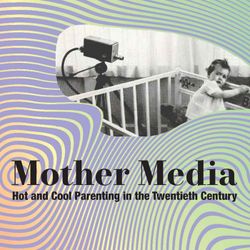
239. The complicated role of media in motherhood
52:42||Ep. 239In the early 20th century, prominent figures in psychology, psychiatry and pediatrics in the U.S. began to promote a new standard for mothers: that they should serve as a constant, unchanging and wholly nurturing presence in their children’s lives. It was the best way, they claimed, to raise healthy and successful children. This ideal marked a shift away from earlier traditions where caregiving was often distributed among extended family members, hired help and community. In her new book, Mother Media: Hot and Cool Parenting in the Twentieth Century, UC Berkeley associate professor Hannah Zeavin explores how the new ideal of constant mothering was advanced by the mind sciences during the rise of the nuclear family and became especially powerful for white, middle-class mothers.Yet this expectation was both unrealistic and deeply shaped by issues of race and class, says Zeavin, who spoke last month at a Berkeley Book Chats event hosted by the Townsend Center for the Humanities.As more mothers entered the workforce and social changes disrupted older forms of caregiving, media researchers began to explore whether technology could step in, imagining devices — first, baby monitors and later, TVs and tablets — as substitutes for, or supplements to, maternal care. In this Berkeley Talks episode, Zeavin discusses how these ideals and interventions — defining the “perfect mother,” substituting media for maternal presence and punishing deviations from the norm — continue to influence American family life today.Watch a video of the conversation, which was moderated by Ramsey McGlazer, associate professor in the Department of Comparative Literature.Listen to the episode and read the transcript on UC Berkeley News (news.berkeley.edu/podcasts/berkeley-talks).Music by HoliznaCC0.Screenshot of the Mother Media book cover.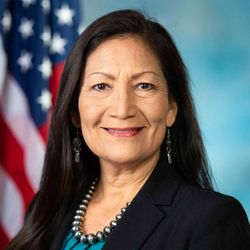
238. Top Biden official calls for unity, ‘moral courage’ in public service
36:14||Ep. 238The United States is in a moment like no other in recent history, says Deb Haaland, former President Joe Biden's secretary of the Interior Department from 2021 to 2025. Every day, she says, it seems a new pillar of the American government is under attack. But what makes this moment unique aren’t these crises themselves, but the attack on the idea that problems can be solved at all. “We face a creeping cynicism that suggests that our real enemy is our desire to make a difference,” she said during the keynote address at the Goldman School of Public Policy’s Annual Conference and Alumni Gathering in September. “We face attacks on the very idea of wanting to make things better. That's why the Goldman School of Public Policy is so vital. Without places like this, without people like those in this room today, America wouldn't have a prayer of meeting this moment.”In this Berkeley Talks episode, Haaland discusses how policy — not politics — is the only path to real change, and why we need a unified effort grounded in moral courage and diverse perspectives to meet the challenges facing the country. “Part of the reason I wanted to join you today is to speak to the importance of faith in the possibility of what we can do together,” she says. “And I use the word ‘faith’ deliberately. Especially in times like these, it takes belief, moral courage and determination in the face of despair to keep going. We have to find it inside ourselves, nurture that flame and keep it lit.”More about the speaker: Haaland is a member of the Laguna Pueblo tribe in New Mexico and the first Native American to serve as a U.S. Cabinet secretary. Before that, she was the U.S. representative for New Mexico's 1st Congressional District from 2019 to 2021, one of the first two Native American women elected to Congress. She is running for governor of New Mexico in the 2026 election. Watch a video of Haaland’s keynote, followed by a conversation with Goldman School of Public Policy Dean David Wilson.Listen to the episode and read the transcript on UC Berkeley News (news.berkeley.edu/podcasts/berkeley-talks).Music by HoliznaCC0.U.S. House Office of Photography photo by Franmarie Metzler.